
Claude Joséphine Rose Cardinale, known as Claudia Cardinale, is an Italian actress.

George Chakiris is an American actor. He is best known for his appearance in the 1961 film version of West Side Story as Bernardo Nunez, the leader of the Sharks gang, for which he won both the Academy Award for Best Supporting Actor and the Golden Globe Award for Best Supporting Actor – Motion Picture.
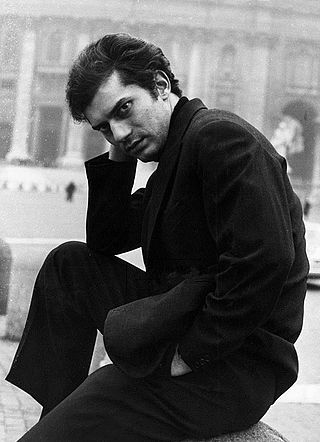
Luigi Tenco was an Italian singer-songwriter.

Monica Vitti was an Italian actress who starred in several award-winning films directed by Michelangelo Antonioni during the 1960s. She appeared with Marcello Mastroianni, Alain Delon, Richard Harris, Terence Stamp, and Dirk Bogarde. On her death, Italian culture minister Dario Franceschini called her "the Queen of Italian cinema".
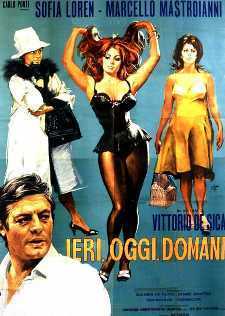
Yesterday, Today and Tomorrow is a 1963 comedy anthology film by Italian director Vittorio De Sica. It stars Sophia Loren and Marcello Mastroianni. The film consists of three short stories about couples in different parts of Italy. The film won the Academy Award for Best Foreign Language Film at the 37th Academy Awards.

The Son's Room is a 2001 Italian film directed, written and produced by Nanni Moretti. It depicts the psychological effects on a family and their life after the death of their son. It was filmed in and around the city of Ancona, with a cast led by Moretti, Laura Morante and Jasmine Trinca.

Carlo Cassola was an Italian novelist and essayist. His novel La Ragazza di Bube (1960), which received the Strega Prize, was adapted into a film of the same name by Luigi Comencini in 1963.

Girl with a Suitcase is a 1961 Italian romantic drama film by Valerio Zurlini starring Claudia Cardinale as a spirited but naive young woman who lives on the fluctuating good will of others. It was entered into the 1961 Cannes Film Festival. In 2008, the film was included on the Italian Ministry of Cultural Heritage’s 100 Italian films to be saved, a list of 100 films that "have changed the collective memory of the country between 1942 and 1978."

Luigi Comencini was an Italian film director. Together with Dino Risi, Ettore Scola and Mario Monicelli, he was considered among the masters of the "commedia all'italiana" genre.

Antonio Pietrangeli was an Italian film director and screenwriter. He was a major practitioner of the commedia all'italiana genre.
The Nastro d'Argento is a film award assigned each year, since 1946, by Sindacato Nazionale dei Giornalisti Cinematografici Italiani the association of Italian film critics.
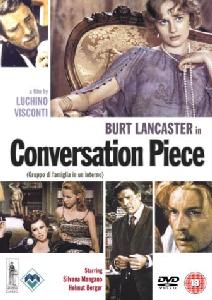
Conversation Piece is a 1974 drama film directed, co-written, and produced by Luchino Visconti. It stars Burt Lancaster, Helmut Berger, Silvana Mangano, and Romolo Valli; with cameo appearances by Claudia Cardinale and Dominique Sanda. The film explores such themes as the collision between old and new, imminence of death, existential crises, and the sociopolitical gap between generations. The title refers to an informal group portrait, especially those painted in Britain in the 18th century, beginning in the 1720s.
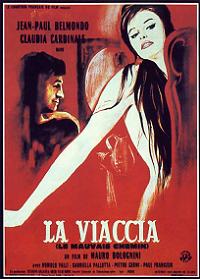
The Lovemakers is a 1961 Italian drama film directed by Mauro Bolognini based on a novel by Mario Pratesi. The film which stars Claudia Cardinale and Jean-Paul Belmondo, was entered into the 1961 Cannes Film Festival.
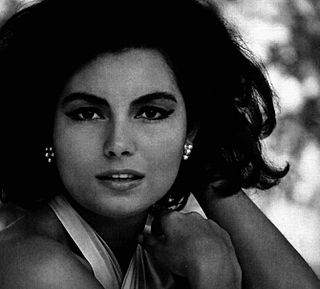
Rosanna Schiaffino was an Italian film actress. She appeared on the covers of Italian, German, French, British and American magazines.

Franco Cristaldi was an Italian film producer, credited with producing feature films from the 1950s to the 1990s.
Bebo's Girl may refer to:

Bebo's Girl is a historical fiction novel by Italian writer Carlo Cassola which was published in 1960 and was awarded that year’s Premio Strega. Its initial reception was enthusiastic and an English translation by Marguerite Waldman was published in 1962 as Bebo’s Girl. By 1995 the original had been through in 14 editions.

The Girl with the Pistol is a 1968 Italian comedy film directed by Mario Monicelli. It was nominated for the Academy Award for Best Foreign Language Film. Monica Vitti won the David di Donatello for Best Actress.

A Girl in Australia is a 1971 Italian comedy film directed by Luigi Zampa, with stars Alberto Sordi and Claudia Cardinale.

Senilità is a 1962 Italian film. It stars Claudia Cardinale and Anthony Franciosa, and is based on the novel Senilità by Italo Svevo.


















